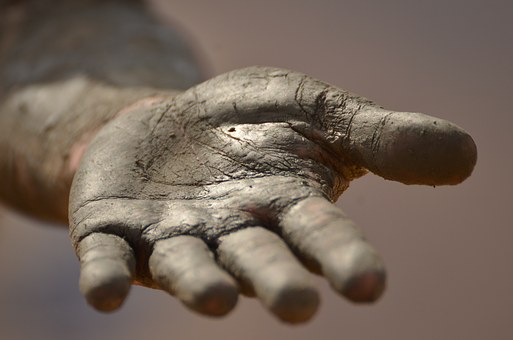Perhaps the best we can do is let them know they are loved and that they are not alone. I don’t know if it is just me and where I am in the stage of my life, but there does seem to be a significant number of people in my circle who are dealing with an awful lot of pain. A sister-in-law who died too young, a husband just diagnosed with prostate cancer, A son addicted to opioids, a young relative with renal failure, a husband imprisoned; these are some but not all of the stories our family has heard from those who are in such angst and pain.
I understand that pain is an inherent part of living, but there seems to be an awful lot of it out there at this particular time. Maybe I’m just more attuned to it; more open to hearing about people’s struggles. Or, perhaps people are opening up more, allowing themselves to become more vulnerable. Or just maybe, the pain has become unbearable and more people are reaching out for comfort from family and friends. I don’t know the answer as to why there are more stories of struggle surrounding me now. When I hear these stories, I feel compelled to help in some way. Telling someone “I’ll pray for you” doesn’t seem to be enough. Of course, I pray for them. I pray that they will have the strength to deal with their hurt, that they will find a way through, that they will eventually find peace in their life. I have come to learn that there are things I must avoid when dealing with a grieving friend and some actions I can take that may help. Here are a few of the main ones: Don’t Make It About Me - I refrain from telling my friends how something similar happened to me and then explain how I dealt with it. I know enough that when people share their pain, I shouldn’t try to turn their story around to be about me. It’s Not About Some Cosmic Plan – I cringe every time I see a person in turmoil and a well-meaning friend tells them that everything will work out because God has a plan; that everything happens for a reason. I just don’t think that’s true and more to the point, I don’t think that is particularly helpful for the person seeking comfort. I do believe that God calls us many times during our life. I don’t believe that he puts obstacles in our path or causes us to experience heartbreak or pain in order to teach us a lesson. Sometimes - most times - life just happens. And when it does, God is there to help us pick up the pieces. But he is not there to intervene. Don’t Try to Fix Everything – This is something I used to be especially guilty of doing. When someone was hurting, I would do anything I could to try to take their pain away. I would give them advice on how to deal with their grief by suggesting they retreat to nature, that they surround themselves with friends, that they go to counseling, that they exercise more. You get the picture. I wasn’t really listening to them and trying to hear their deep seeded needs. I was trying to help them simply mask their pain. Truth be told, I was also trying to mask my own pain and sense of inadequacy in these situations. Listen Deeply – Most times when a friend reaches out, all they really want is someone to talk with, someone that will listen as they process how they feel and what they should do. The Quakers believe that each person has an inherent wisdom deep within them and the role of any friend is – at best – to ask open ended questions that will help them find their own way. This is a uniquely empowering way to help a friend move through their grief and turmoil. Stay Connected – People need time to grieve. They need time to find their own path through what it is they are dealing with. But, they also need friends. Too many times we hear from cancer patients or those who have lost a spouse or loved one that their friends tended to shy away; that they felt isolated. The most loving thing we can do is to reach out and let them know they are welcome to come to dinner, to come to a birthday party, to come to hang out. Whatever it is – just offer the opportunity to connect. And then keep offering. I am struck by the image of Jesus on the cross. There he was, humiliated, dying and in excruciating physical and emotional pain. What did he see below him at the foot of the cross? There was his mother and his aunt, his ardent supporter Mary Magdalene and one apostle, John. They couldn’t help him. They couldn’t ease his pain. All they could do was stand there and let him know that he was loved and that he was not alone. That’s the best that any of us can do.
0 Comments
Your comment will be posted after it is approved.
Leave a Reply. |
AuthorMichael Soika has been a community activist for more than 30 years working on issues of social and economic justice. His work for justice is anchored by his spiritual formation first as a Catholic and now as a Quaker. Archives
June 2018
Categories |


 RSS Feed
RSS Feed